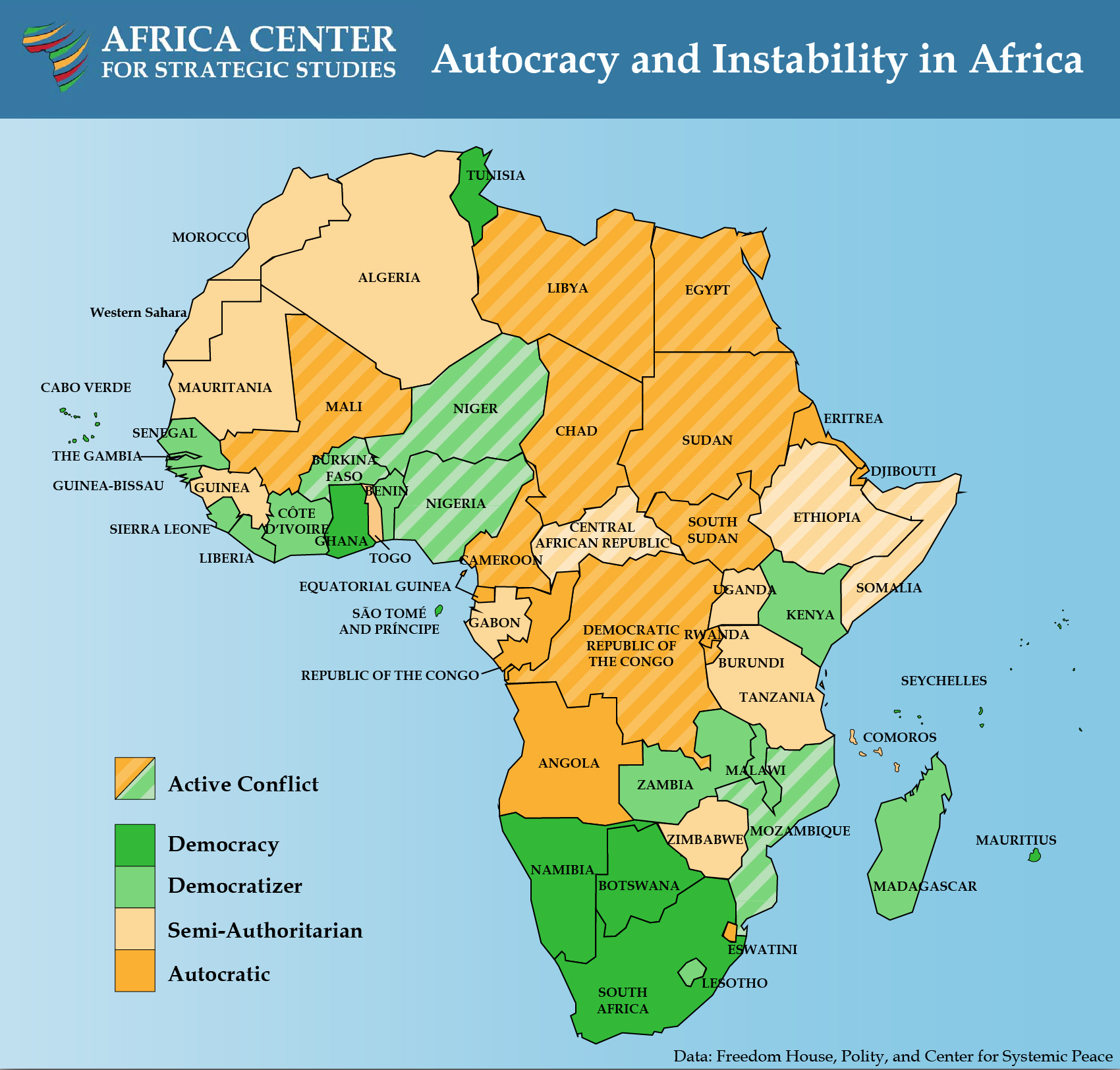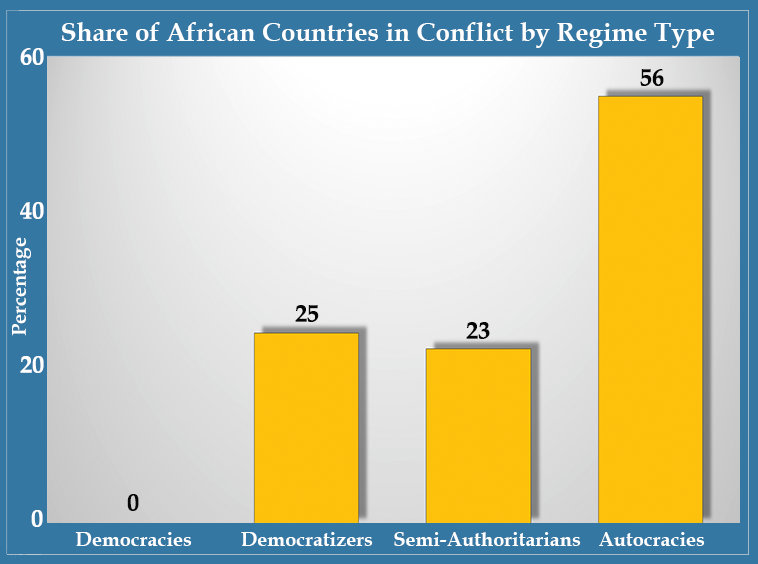Click here for printable PDF version.
Sixteen African countries are experiencing sustained armed conflict. While each is the result of unique, context-specific circumstances, some general patterns are evident. Chief among these is the role of governance.
Highlights
- Three-quarters of the African countries facing armed conflict (12 out of 16) have either autocratic or semi-authoritarian governments.
- Of the 12 armed conflicts with authoritarian-leaning governments, 8 are political conflicts or civil wars.
- The four democratizing governments that are experiencing armed conflict, by contrast, are all facing militant Islamist insurgencies.
- Armed conflicts in Africa’s authoritarian-leaning countries have been ongoing for roughly twice as long, on average, as those in democratizing countries.
- 7 of the 9 autocracies facing armed conflict have leaders who have come to power via a coup or prolonged their time in office by evading term limits.
- 8 of the 10 countries of origin for Africa’s record levels of forced displacement are autocratic or semi-authoritarian.
- 9 of the 10 African countries facing the most acute food insecurity are autocratic or semi-authoritarian.
- Overall, 9 of Africa’s 16 autocracies—56 percent—are experiencing armed conflict.
- None of Africa’s democracies, by comparison, are in conflict.
Additional Resources
- Joseph Siegle, “Democracy and Security in Africa,” Video, Africa Center for Strategic Studies, March 19, 2021.
- Africa Center for Strategic Studies, “Food Insecurity Crisis Mounting in Africa,” Infographic, Africa Center for Strategic Studies, February 16, 2021.
- Africa Center for Strategic Studies, “Spike in Militant Islamist Violence in Africa Underscores Shifting Security Landscape,” Infographic, Africa Center for Strategic Studies, January 29, 2021.
- Joseph Siegle and Candace Cook, “Taking Stock of Africa’s 2021 Elections,” Spotlight, Africa Center for Strategic Studies, January 12, 2021.
- Joseph Siegle and Candace Cook, “Circumvention of Term Limits Weakens Governance in Africa,” Infographic, Africa Center for Strategic Studies, September 14, 2020.
- Wendy Williams, “Shifting Borders: Africa’s Displacement Crisis and Its Security Implications,” Africa Center Research Paper, No. 8, October 17, 2019.



